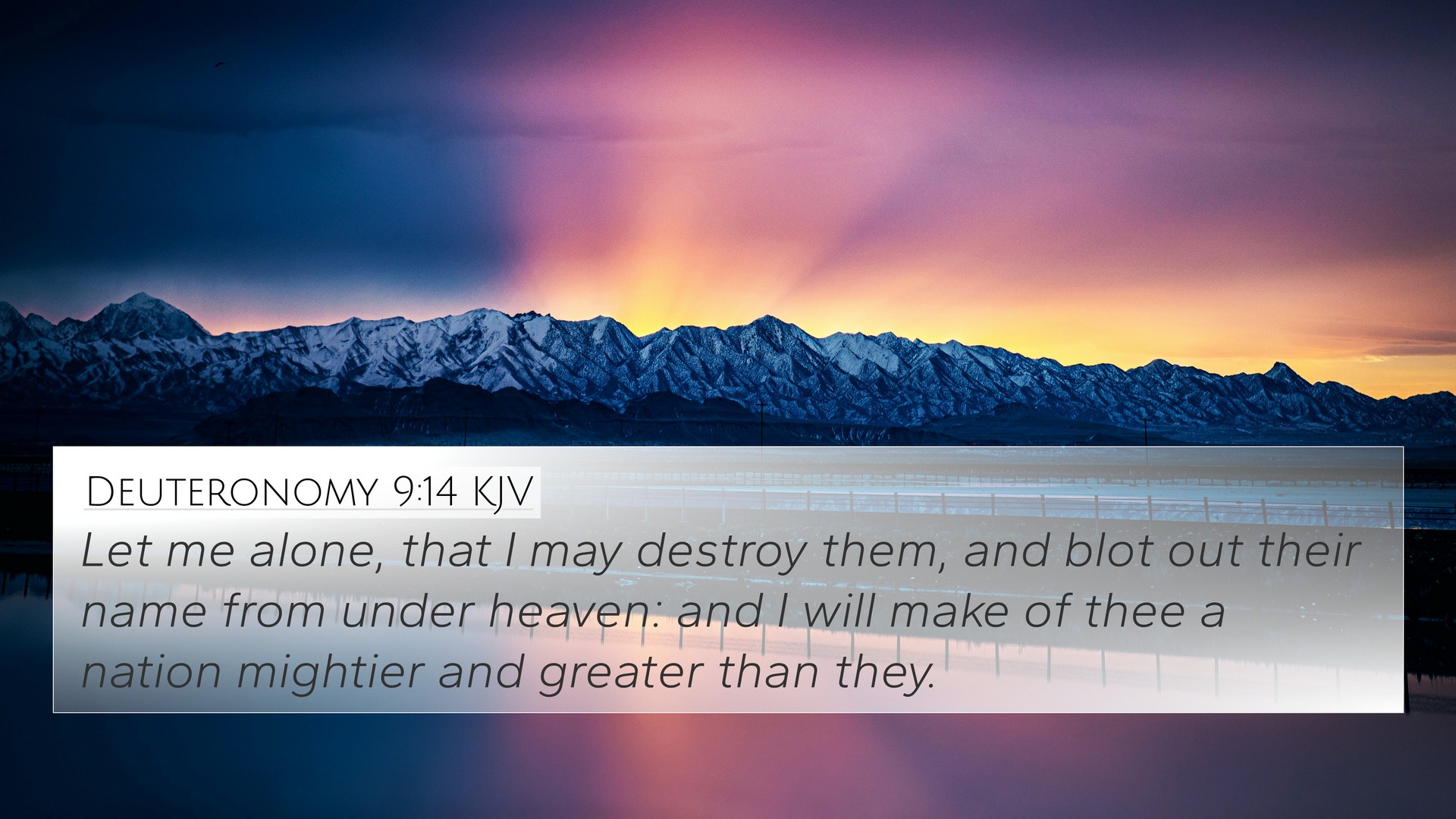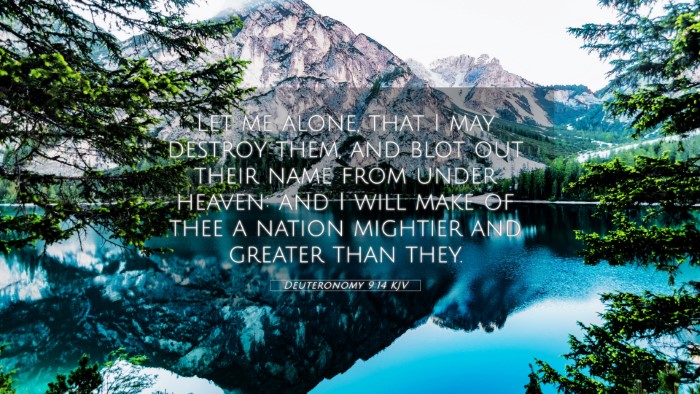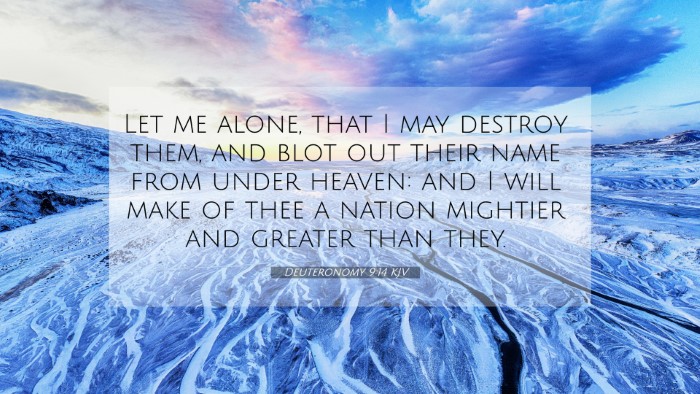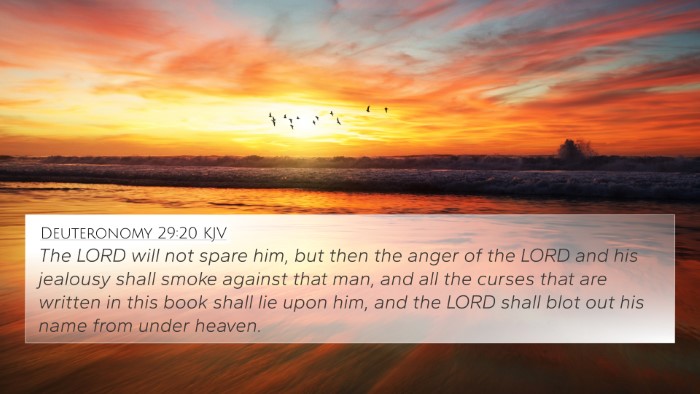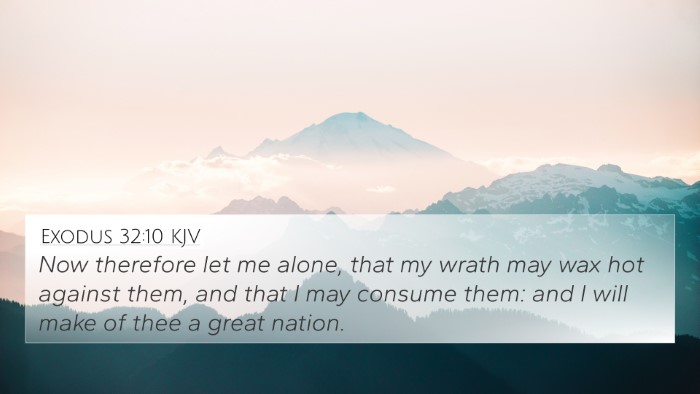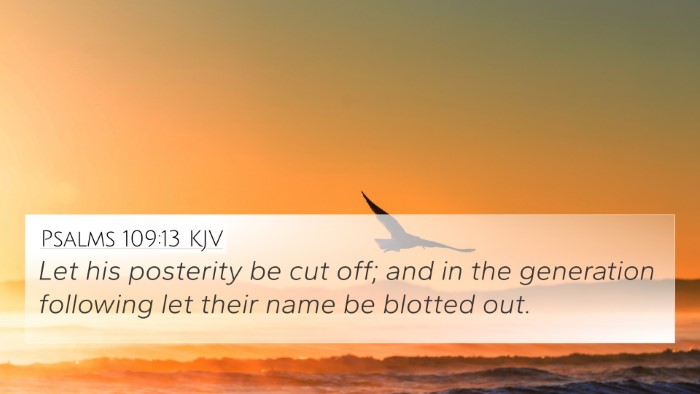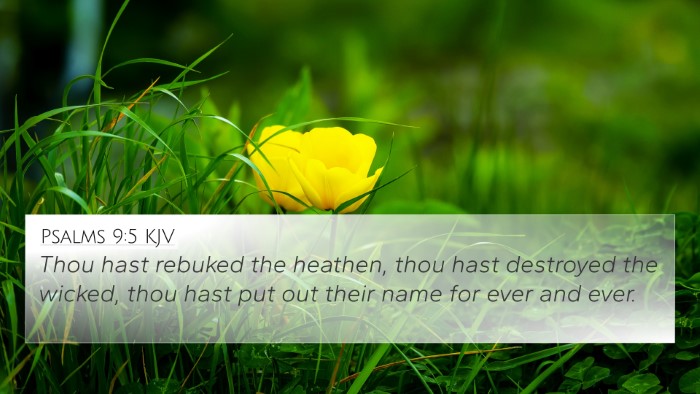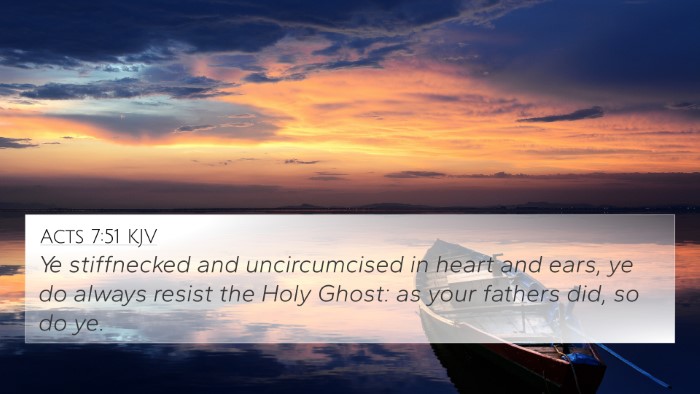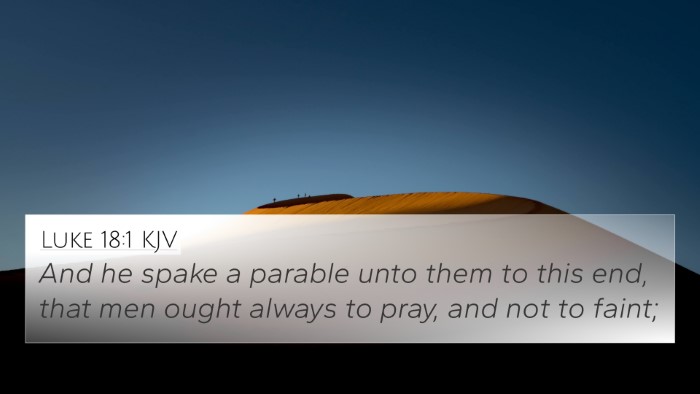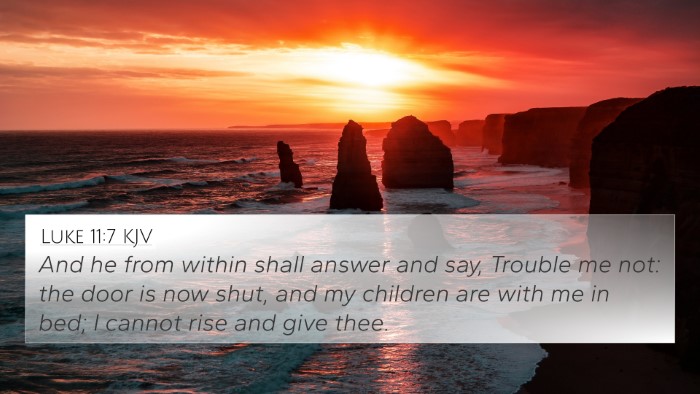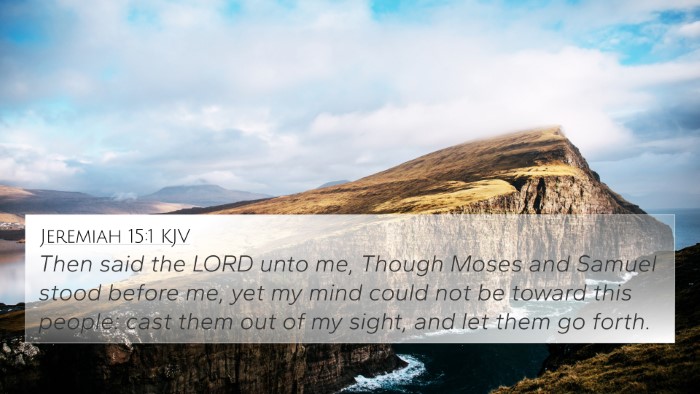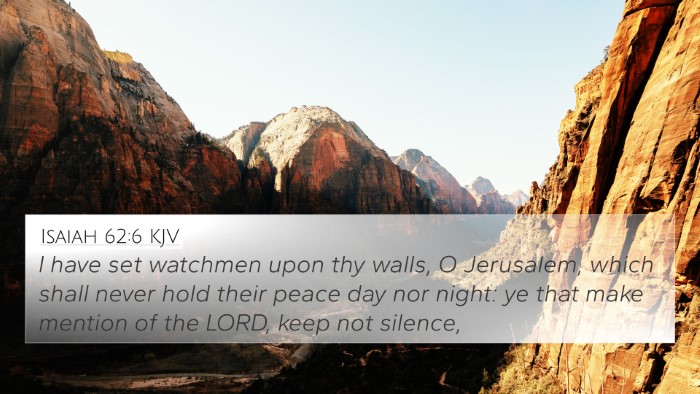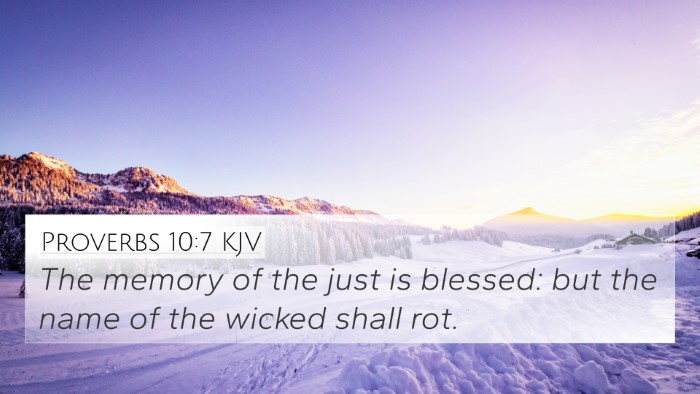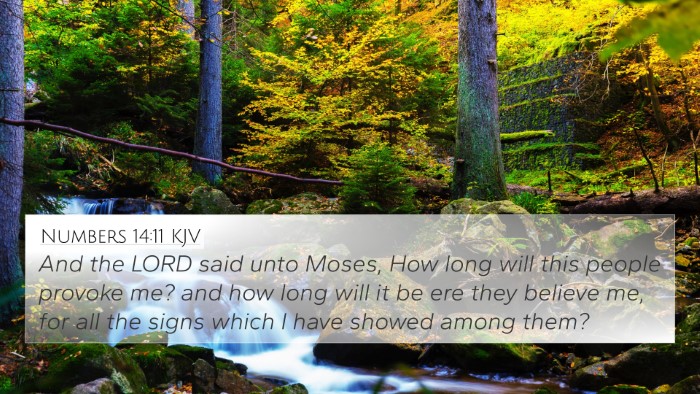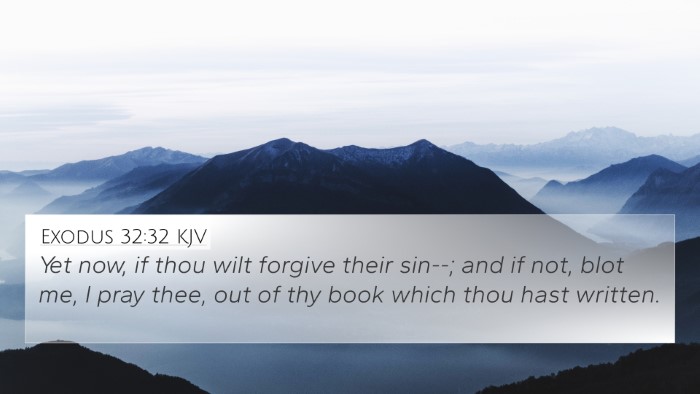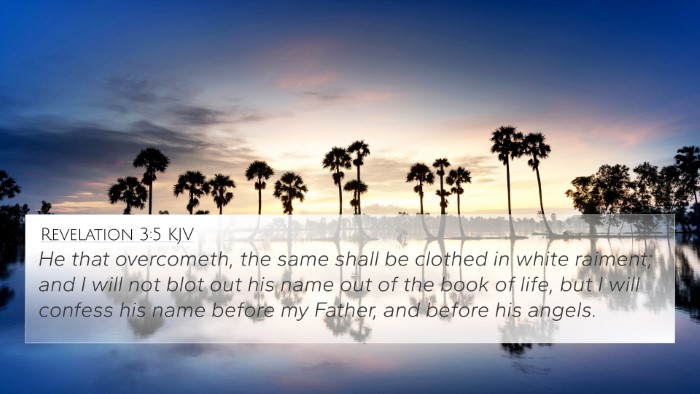Understanding Deuteronomy 9:14
Verse Context: Deuteronomy 9:14 states, "Let me alone, that I may destroy them and blot out their name from under heaven; and I will make of you a nation mightier and greater than they." This passage is part of a larger discourse in which Moses intercedes for the Israelites after their fall into sin with the golden calf.
Verse Meaning and Interpretation
The verse reflects God's anger toward the Israelites for their unfaithfulness and their tendency toward idolatry. It also illuminates a crucial moment where Moses, as the mediator, pleads for God's mercy, showcasing a deeper theme of repentance and intercession.
Moses' Role as Intercessor
Moses stands in the gap between the people and God, demonstrating the essential priestly function of intercession. This role foreshadows the ultimate intercessor, Jesus Christ. Commentators like Matthew Henry emphasize that Moses’ appeal to God highlights the mercy and grace that God extends, even in the face of sin.
Theological Implications
1. God's Justice and Mercy: The tension between God’s justice in response to sin and His mercy in saving the penitent is a recurring theme in Scripture.
2. Human Responsibility: This passage illustrates the responsibility of leaders to intercede for their people, as noted by Albert Barnes in his explorations of the nature of leadership and spiritual oversight.
Cross-Referencing Biblical Texts
This verse can be understood more deeply through various cross-references that connect themes of sin, judgment, and intercession.
- Exodus 32:10 - God's command to Moses to leave Him alone so He can destroy the Israelites, showing similar context of judgment.
- Numbers 14:12 - God expresses intent to destroy Israel, showcasing the ongoing theme of divine wrath against disobedience.
- Romans 9:3 - Paul reflects on his desire to be cut off for the sake of Israel, paralleling Moses' selfless intercession.
- 1 Timothy 2:1-4 - Paul encourages prayers for all people, emphasizing the modern-day application of intercessory prayer.
- Hebrews 7:25 - Jesus as our eternal intercessor, providing a New Testament lens on the role of mediation.
- Matthew 5:7 - Blessed are the merciful, reflecting the nature of God's mercy that Moses appeals to.
- Psalms 106:23 - Reference to Moses' intercession when God planned to destroy the Israelites for their rebellion.
Thematic Connections
This verse exemplifies a critical moment in the narrative of redemption history, where divine grace interrupts the trajectory of judgment. The inter-Biblical dialogue around this theme can further expand one’s understanding through similar verses.
Other Related Bible Verses
- Exodus 32:32 - Moses offers his life for the people, highlighting the depth of his intercession.
- Jeremiah 7:16 - God tells Jeremiah not to intercede for the sinful people, showcasing a stark contrast to Moses' plea.
- James 5:16 - The effective prayer of a righteous person, underscoring the power of intercessory prayer in the New Testament.
Conclusion
Deuteronomy 9:14 serves as a compelling call for understanding human sinfulness and God's grace. Through Moses’ intercession and God's ultimate willingness to forgive, we see the profound themes of mercy, repentance, and divine justice unfolding in the biblical narrative. The connections to other scriptures enrich our understanding of these concepts and underline the importance of intercessory prayer in the life of believers.
Tools for Further Study
For those interested in exploring this theme further, utilizing a bible concordance or a bible cross-reference guide can provide additional insights into connected verses and themes throughout the Bible. Cross-reference Bible study methods allow one to delve deeper into how scripture interprets scripture, facilitating a comprehensive understanding of biblical truths.
